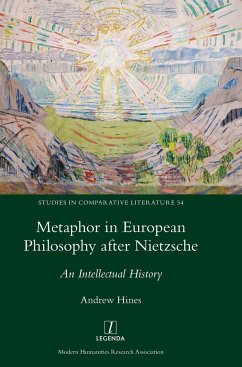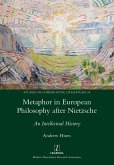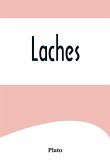When one encounters a metaphor in the Humanities, the interpretation of that metaphor is dominated by either cognitive linguistics or post-Kantian European philosophy. Each of these traditions holds a differing view of how the meanings of metaphors are created. But today, in political ideology, the meanings of metaphors are rapidly shifting. The question is no longer, how is meaning created, but how meaning shifts. One of the ways to untangle our assumptions about metaphor is to revisit a key moment in its evolution. In this lucid and provocative study, Andrew Hines provides an intellectual history of the influence of Friedrich Nietzsche's conception of metaphor on European philosophy and how that conception underpins key interpretative challenges in contemporary culture and politics. Andrew Hines is Lecturer in World Philosophies at SOAS University of London and the Thyssen Research Fellow at the Centre for Anglo-German Cultural Relations at Queen Mary University of London. He is a contributing editor of the Journal of the History of Ideas Blog.
Bitte wählen Sie Ihr Anliegen aus.
Rechnungen
Retourenschein anfordern
Bestellstatus
Storno









